Die endlose Nacht [The Endless Night] (Will Tremper, 1963)
Jul
6
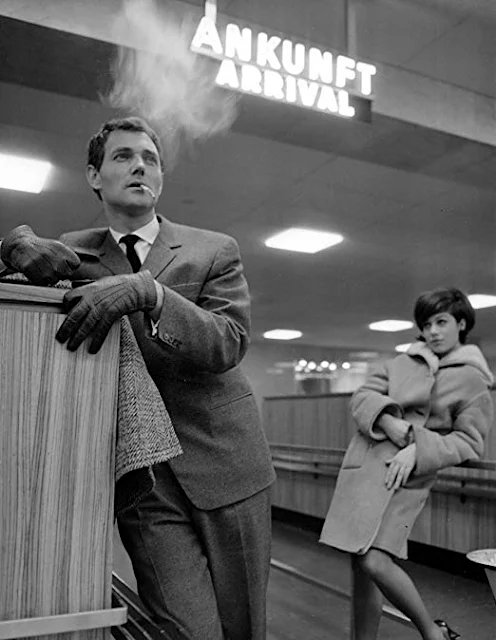
The bold and the beautiful stuck at Tempelhof. And yes, one could smoke there. DP: Hans Jura.
(People at) an airport*
It's foggy at Flughafen Berlin-Tempelhof, the Allies' airbridge to the West, and all the planes into and out of West Berlin are grounded. In any other metropolis this could mean taking a train, enjoy the city's nightlife or maybe just a bed for the night. In post-Wall bureaucracy-happy West Berlin, this means endless waits with strangers. And so, with nowhere to go, a Polish jazz band mingles with British spouses, a lonely South African farmer, a model and her beau.
* the Bales 2025 Film Challenge for July is, for unknown reasons, mostly not date-related and follows some sort of vacation narrative.
“It appears obvious that the territory is the sum of all the maps, the result of an infinite addition. Or a contrary, the territory is what is left when we remove all the sets of lines, drawings, traces and colors which are covering it. Its existence becomes doubtful.” Zig-Zag – le jeu de l'oie (Une fiction didactique à propos de la cartographie) [Snakes and Ladders] (Raúl Ruiz, 1980)
Jul
5
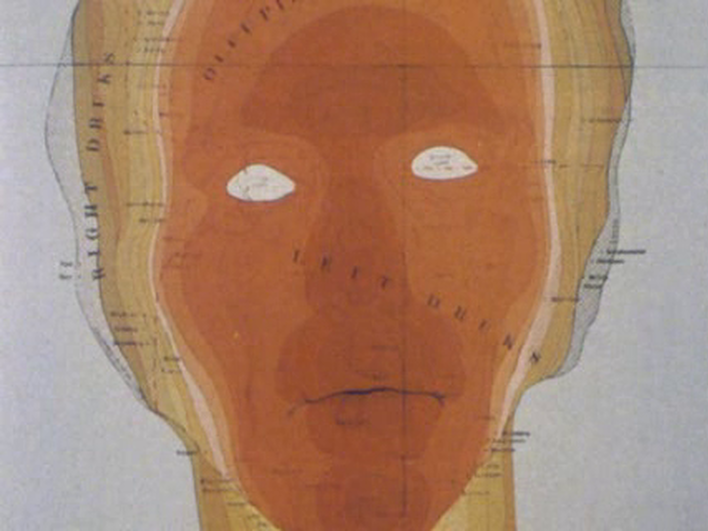
An anthropomorphic map with contour lines sketching out a man's head (via). DP: Alain Montrobert.
Traveling to my vacation destination, a map or globe*
– H., via
A man, H., joins two others playing jeu de l'oie (Game of the Goose), a board game associated with labyrinths and pilgrimage. While the three play, the game opens up maps and new roads to explore.
Following my own Bales' rules, I cannot pick a title twice. See Zig-Zag as an avatar of Raúl Ruiz's O Território [The Territory] from 1981.
* the Bales 2025 Film Challenge for July is, for unknown reasons, mostly not date-related and follows some sort of vacation narrative.
“This film tells a story of rebels (played by real rats) and cops (played by real cats). After a long domination by cats, the rats escape from prison (this is their rebellion) and find refuge in Canada. There, they feed on organic produce from a garden where the grass hasn’t been sprayed with DDT.” Rat Life and Diet in North America (Joyce Wieland, 1968)
Jul
4
Independence Day
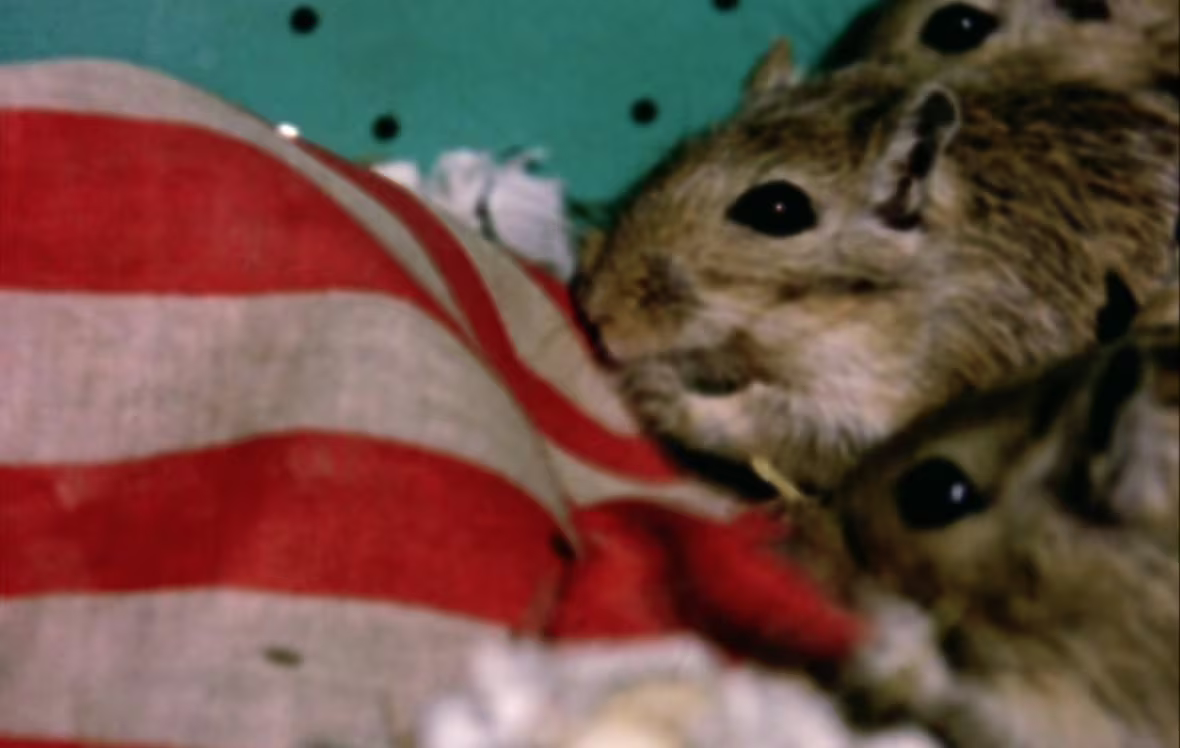
Rats – gerbils actually – nibbling on the Stars and Stripes (via). DP: Joyce Wieland.
A movie set in the USA for Independence Day (USA)
– Jonas Mekas, via
French-Canadian patriot Joyce Wieland tells a fable of freedom.
Coincidentally, the Canadian city of Trois-Rivières, scene of the final battle of the American Revolutionary War, also celebrates an Independence Day on the fourth of July.
“On July 4, 1976 I and my camera toured the state of Colorado with governor Richard D. Lamm, as he traveled in parades with his children, appeared at dinners, lectured, etc. On July 20, I spent the morning in his office in the state capitol and the afternoon with himself and his wife in a television studio, then with Mrs. Lamm greeting guests to the governor’s mansion and finally with Governor Lamm in his office again. These two days of photography took me exactly one year to edit into a film which wove itself thru multiple superimpositions into a study of light and power.”The Governor (Stan Brakhage, 1977)
Jul
4
1976
And July 20
– Stan Brakhage
“Nobody shoves dirty money in my mouth.”The Naked Kiss (Samuel Fuller, 1964)
Jul
4
1961
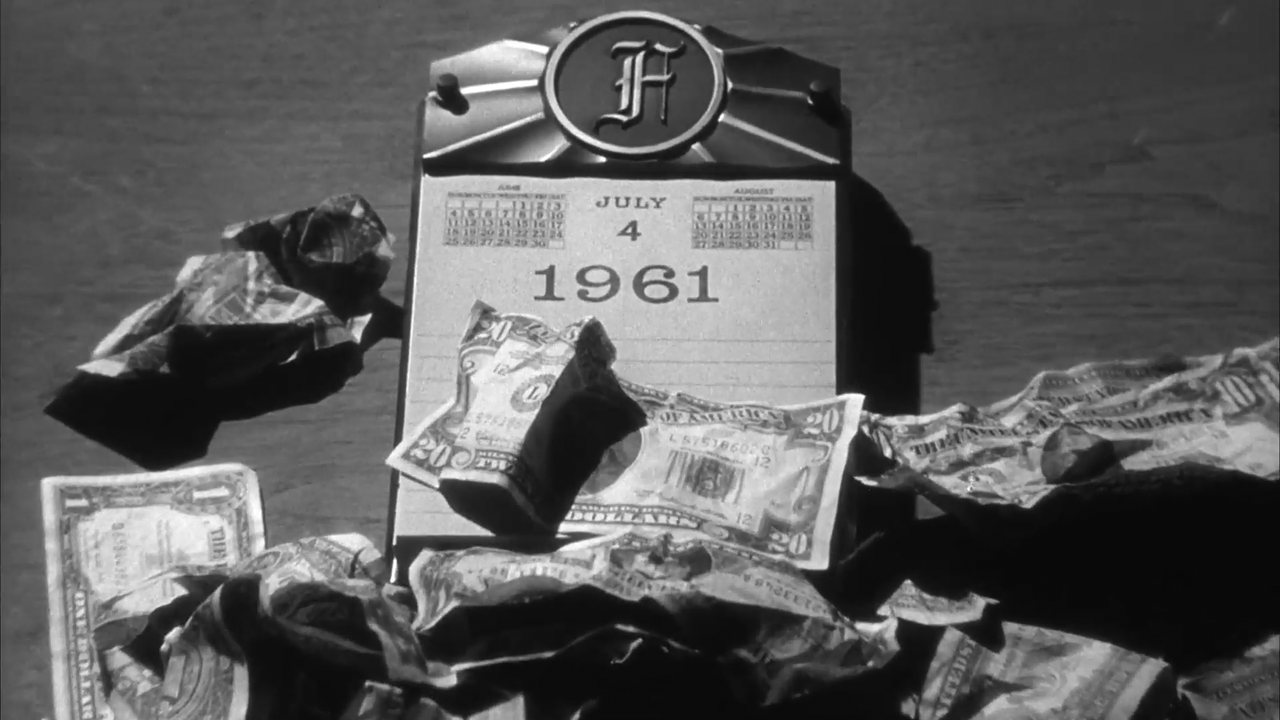
A desk calendar reading July 4, 1961, with dirty, crumpled dollar bills thrown on top of it. DP: Stanley Cortez.
– Candy
Divorzio all'italiana [Divorce Italian Style] (Pietro Germi, 1961)
Jul
3
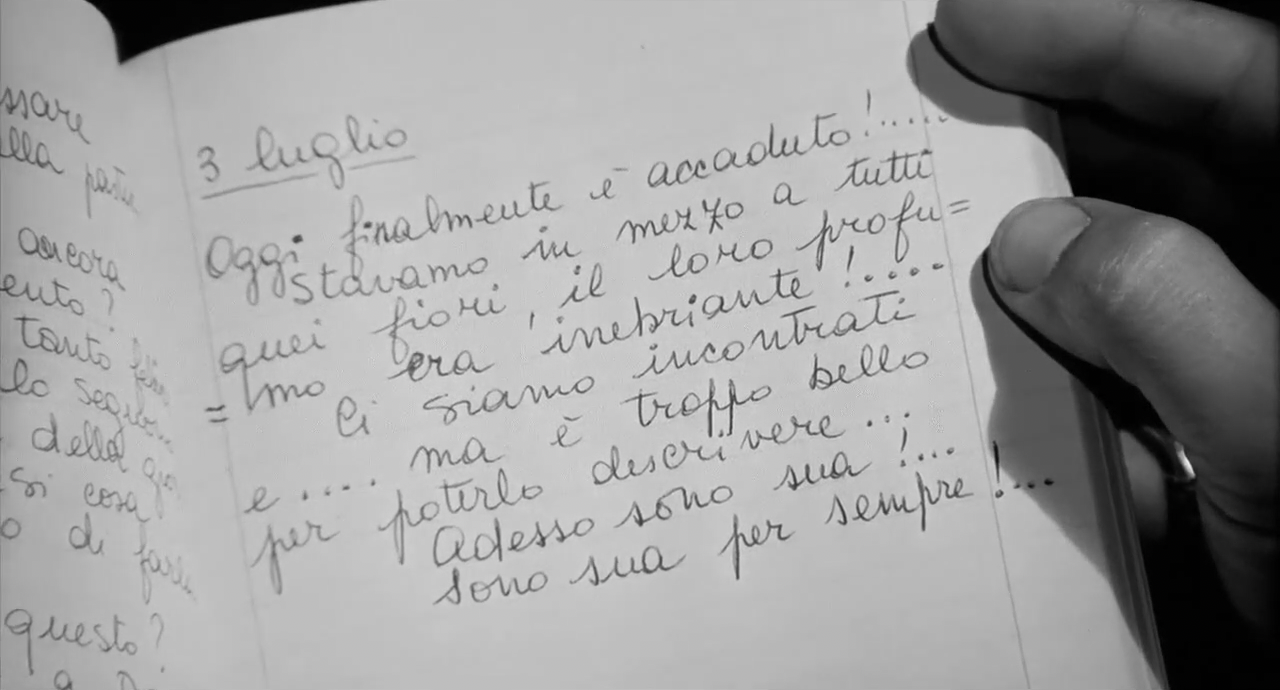
A closeup of a man's hand holding up a diary. It's the third of July. DPs: Leonida Barboni & Carlo Di Palma.
Additionally, IMDb writes that “director Pietro Germi filmed a close-up of the front page of a newspaper announcing Yuri Gagarin's flight around the earth on April 12th 1961.”
“You've won a doll and a kiss. I'll give you the doll and your girl can give you the kiss!”Lonesome (Pál Fejős, 1928)
Jul
3
Sat
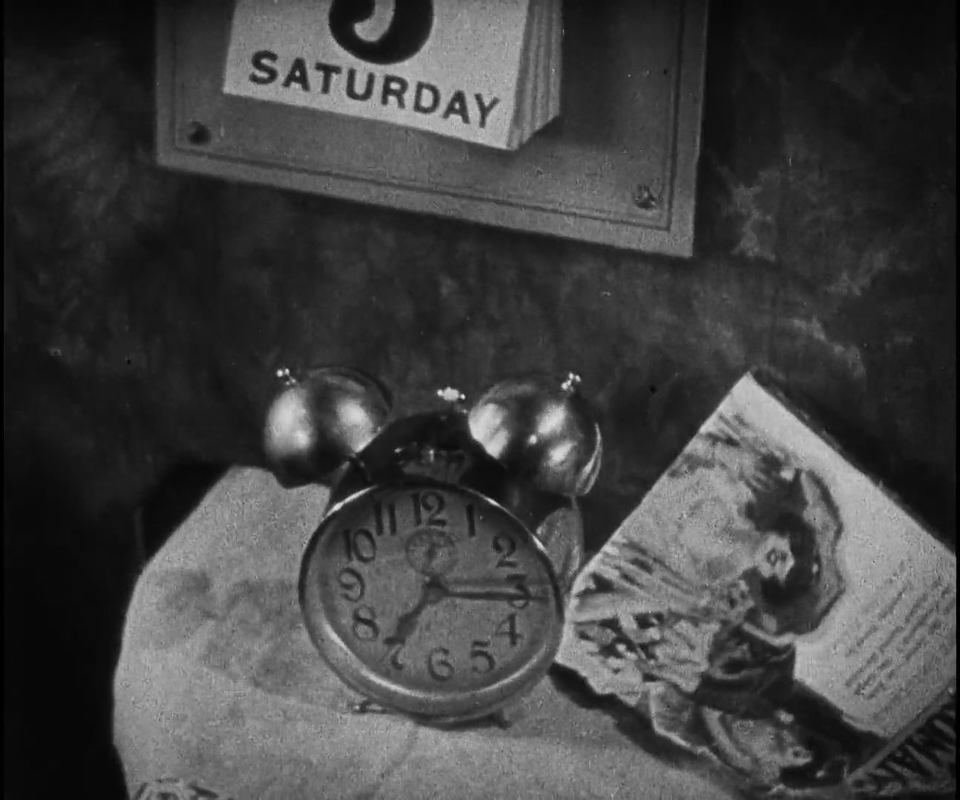
An alarm clock informs us it's 7:15 while the calendar adds that it's the 3rd on a Saturday. Next to the alarm a crumpled up ladies' magazine. DP: Gilbert Warrenton.
– Coney Island barker
“What I sought in 'Pacific' was not the imitation of the sounds of the locomotive, but the translation of a visual impression and a physical enjoyment through a musical construction. It starts from objective contemplation: the quiet breathing of the engine at rest, the effort of starting, then the progressive increase in speed, to arrive at the lyrical state, the pathos of the 300-ton train, launched in the middle of the night at 120 km/h.” Пасифик 231 [Pasifik 231 / Pacific 231] (Mikhail Tsekhanovskiy, 1931)
Jul
2
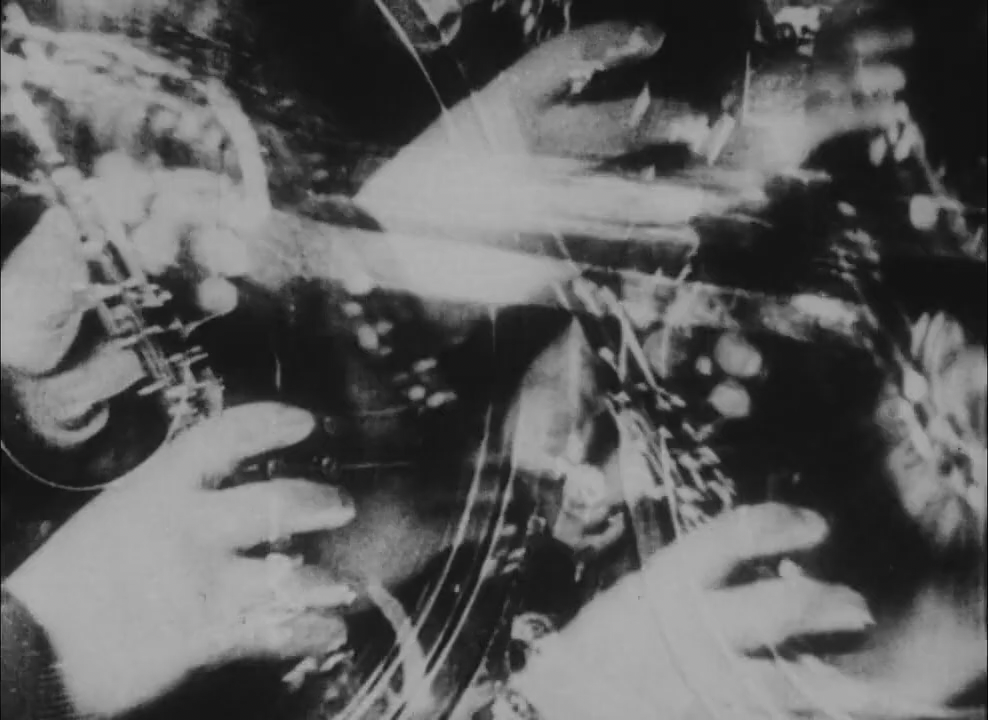
Musicians superimposed over the locomotive's pistons. DP: Leonid Patlis.
A mode of transportation to get me to my ideal vacation destination*. And yes, I would travel to an island by transcontinental locomotive
– Arthur Honegger, Dissonances. Revue musicale indépendante (1925) (via)
Hinted on in Abel Gance's La Roue (1923), composer Arthur Honegger's Пасифик 231 follows the narrative of a stream train ploughing through the night. The conductor's gestures mirror the fireman's and slowly, the machine comes to live. The music becomes abstract, machine-like, in its rendition of pistons and valves. Using double exposure and Soviet montage theory, music and movement become one. The Futurists, if not opposed to the Soviets that is, would have had a field day with this outing.
* the Bales 2025 Film Challenge for July is, for unknown reasons, mostly not date-related and follows some sort of vacation narrative.
Il mare [The Sea] (Giuseppe Patroni Griffi, 1962)
Jul
1
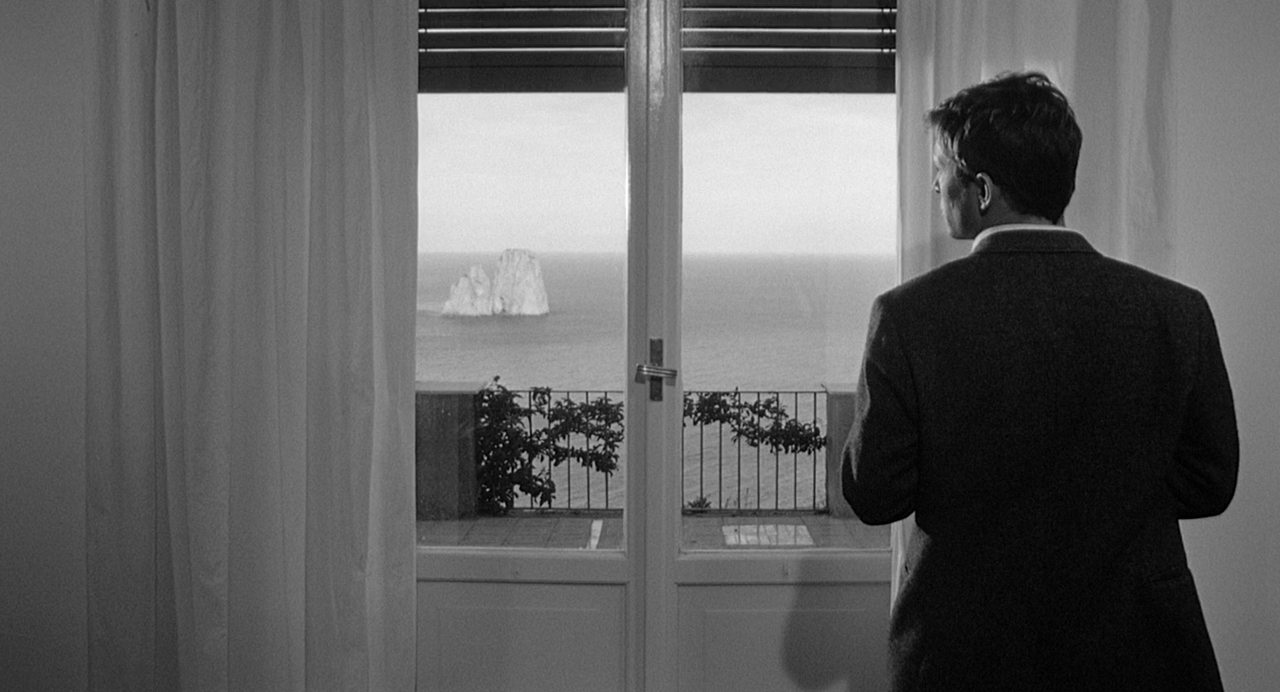
The actor (Umberto Orsini) looking out over the island. The claustrophobic framing of the hotel windows contrasts sharply with the openness of the sea. DP: Ennio Guarnieri.
My ideal vacation spot, country, city, town, or resort*
An island, in this case Capri (granted I've never been there), off-season, in a space and time lost in the mists. It'll occasionally rain and it's cold enough to dress up.
* the Bales 2025 Film Challenge for July is, for unknown reasons, mostly not date-related and follows some sort of vacation narrative.
“The house takes care of itself.”Burnt Offerings (Dan Curtis, 1976)
Jul
1

The chauffeur (Anthony James). DP: Jacques R. Marquette.
– Roz Allardyce